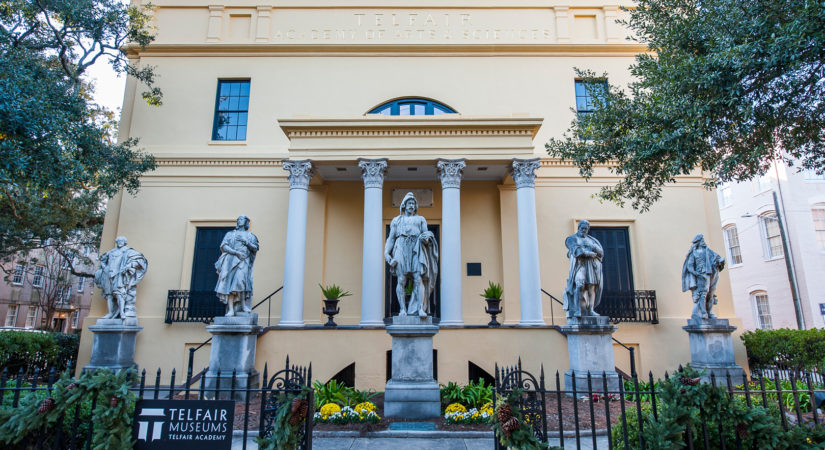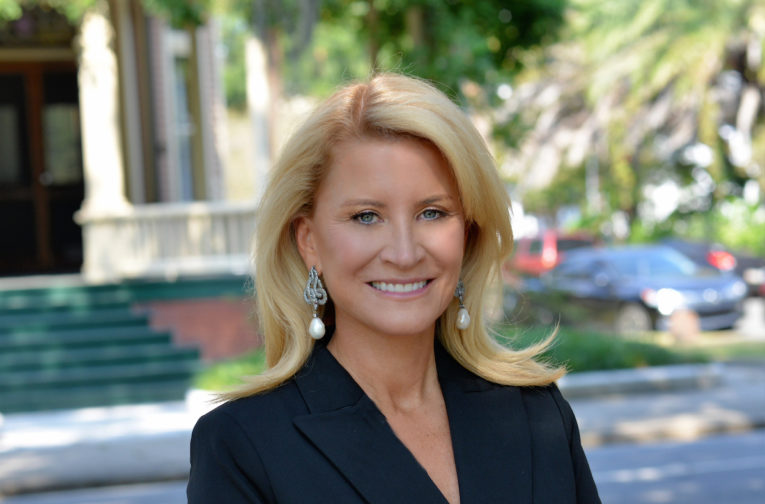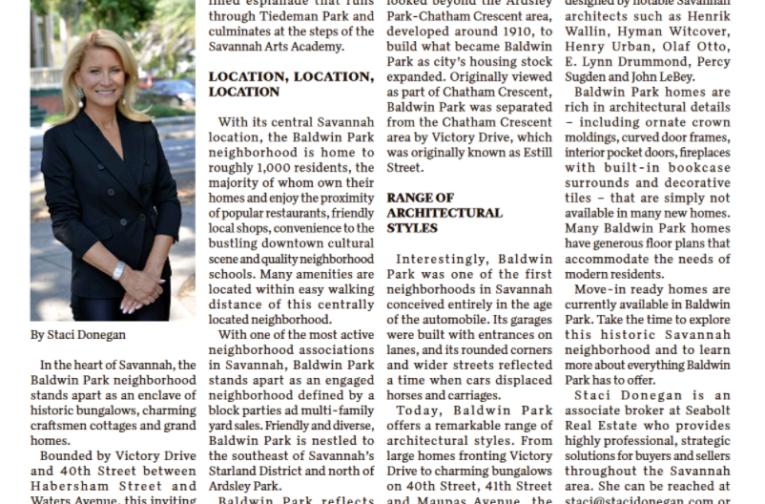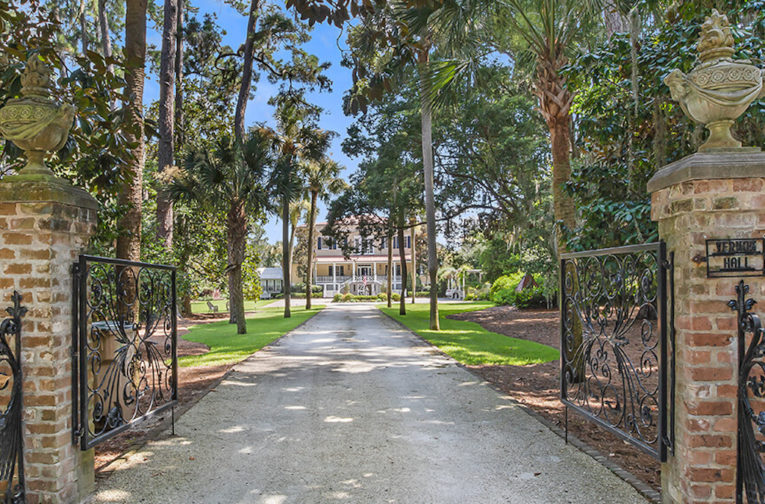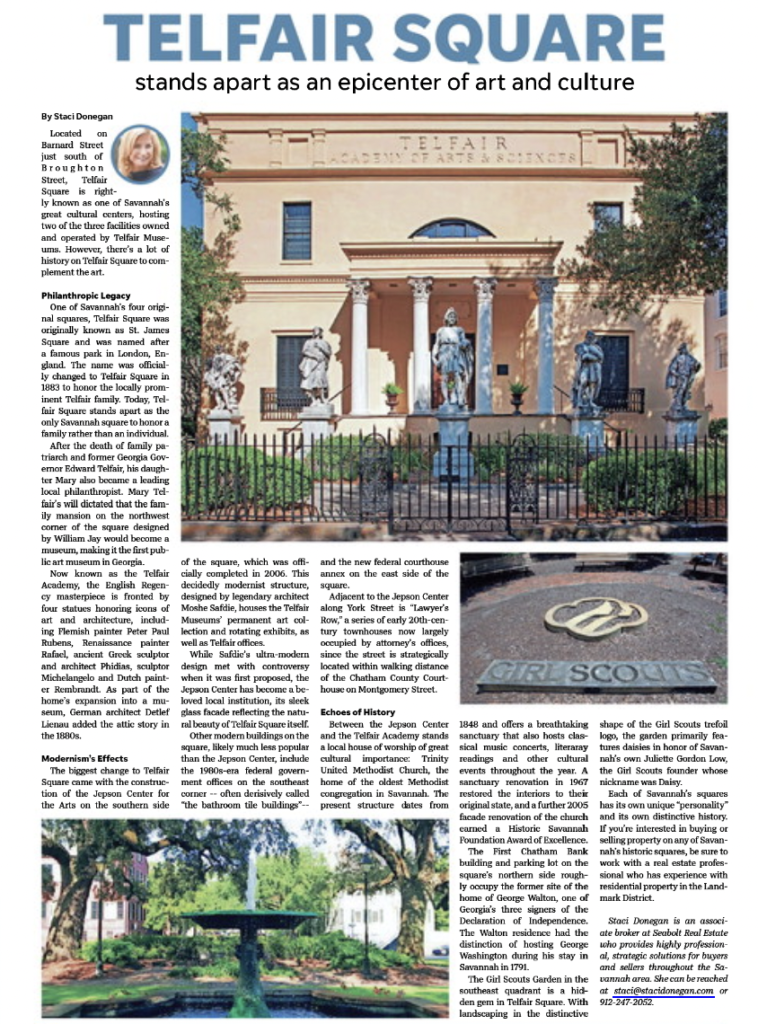
Located on Barnard Street just south of Broughton Street, Telfair Square is rightly known as one of Savannah’s great cultural centers, hosting two of the three facilities owned and operated by Telfair Museums. However, there’s a lot of history on Telfair Square to complement the art.
Philanthropic Legacy
One of Savannah’s four original squares, Telfair Square was originally known as St. James Square and was named after a famous park in London, England. The name was officially changed to Telfair Square in 1883 to honor the locally prominent Telfair family. Today, Telfair Square stands apart as the only Savannah square to honor a family rather than an individual.
After the death of family patriarch and former Georgia Governor Edward Telfair, his daughter Mary also became a leading local philanthropist. Mary Telfair’s will dictated that the family mansion on the northwest corner of the square designed by William Jay would become a museum, making it the first public art museum in Georgia.
Now known as the Telfair Academy, the English Regency masterpiece is fronted by four statues honoring icons of art and architecture, including Flemish painter Peter Paul Rubens, Renaissance painter Rafael, ancient Greek sculptor and architect Phidias, sculptor Michelangelo and Dutch painter Rembrandt. As part of the home’s expansion into a museum, German architect Detlef Lienau added the attic story in the 1880s.
Modernism’s Effects
The biggest change to Telfair Square came with the construction of the Jepson Center for the Arts on the southern side of the square, which was officially completed in 2006. This decidedly modernist structure, designed by legendary architect Moshe Safdie, houses the Telfair Museums’ permanent art collection and rotating exhibits, as well as Telfair offices.
While Safdie’s ultra-modern design met with controversy when it was first proposed, the Jepson Center has become a beloved local institution, its sleek glass facade reflecting the natural beauty of Telfair Square itself.
Other modern buildings on the square, likely much less popular than the Jepson Center, include the 1980s-era federal government offices on the southeast corner — often derisively called “the bathroom tile buildings”– and the new federal courthouse annex on the east side of the square.
Adjacent to the Jepson Center along York Street is “Lawyer’s Row,” a series of early 20th-century townhouses now largely occupied by attorney’s offices, since the street is strategically located within walking distance of the Chatham County Courthouse on Montgomery Street.
Echoes of History
Between the Jepson Center and the Telfair Academy stands a local house of worship of great cultural importance: Trinity United Methodist Church, the home of the oldest Methodist congregation in Savannah. The present structure dates from 1848 and offers a breathtaking sanctuary that also hosts classical music concerts, literaray readings and other cultural events throughout the year. A sanctuary renovation in 1967 restored the interiors to their original state, and a further 2005 facade renovation of the church earned a Historic Savannah Foundation Award of Excellence.
The First Chatham Bank building and parking lot on the square’s northern side roughly occupy the former site of the home of George Walton, one of Georgia’s three signers of the Declaration of Independence. The Walton residence had the distinction of hosting George Washington during his stay in Savannah in 1791.
The Girl Scouts Garden in the southeast quadrant is a hidden gem in Telfair Square. With landscaping in the distinctive shape of the Girl Scouts trefoil logo, the garden primarily features daisies in honor of Savannah’s own Juliette Gordon Low, the Girl Scouts founder whose nickname was Daisy.
Each of Savannah’s squares has its own unique “personality” and its own distinctive history. If you’re interested in buying or selling property on any of Savannah’s historic squares, be sure to work with a real estate professional who has experience with residential property in the Landmark District.

